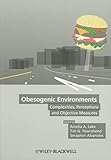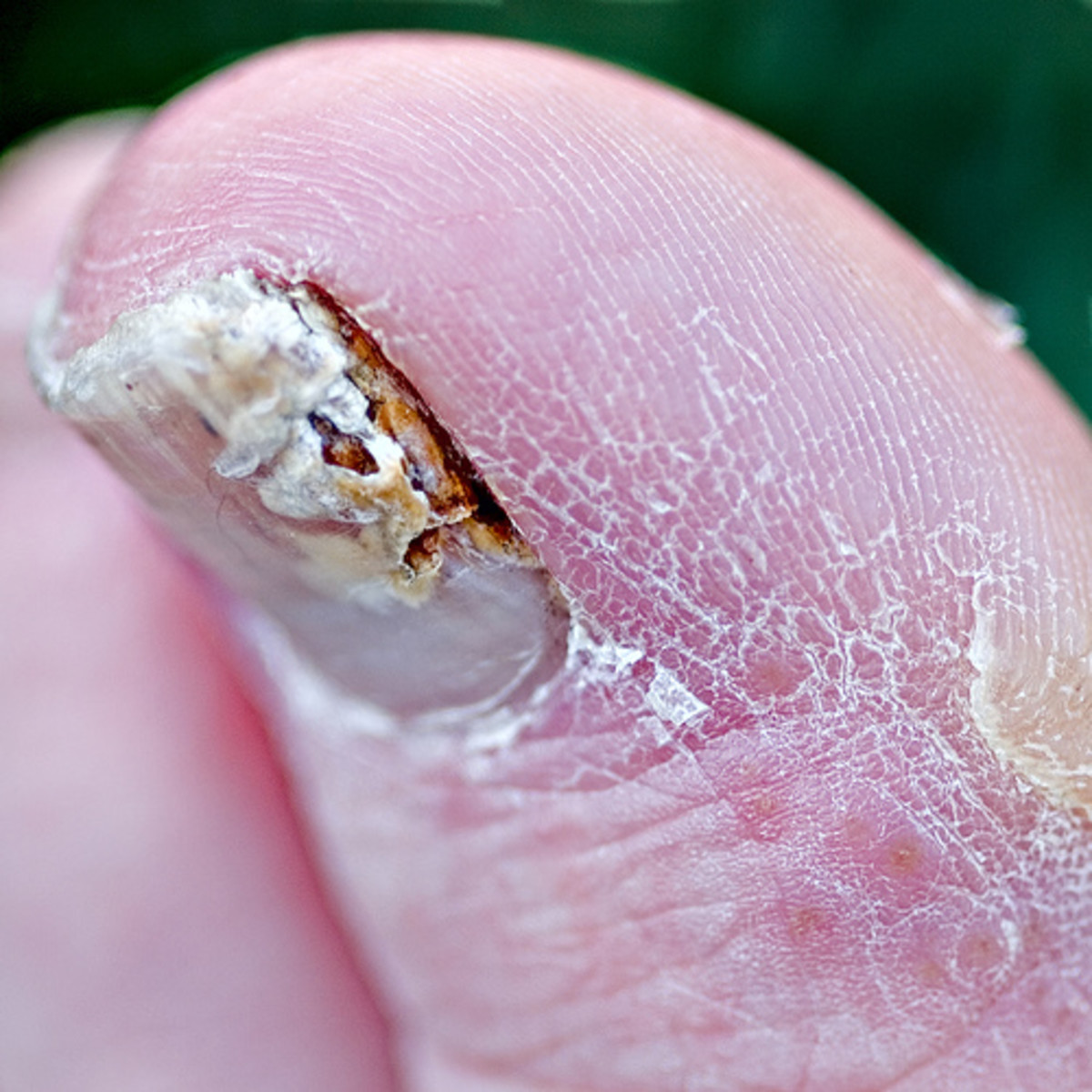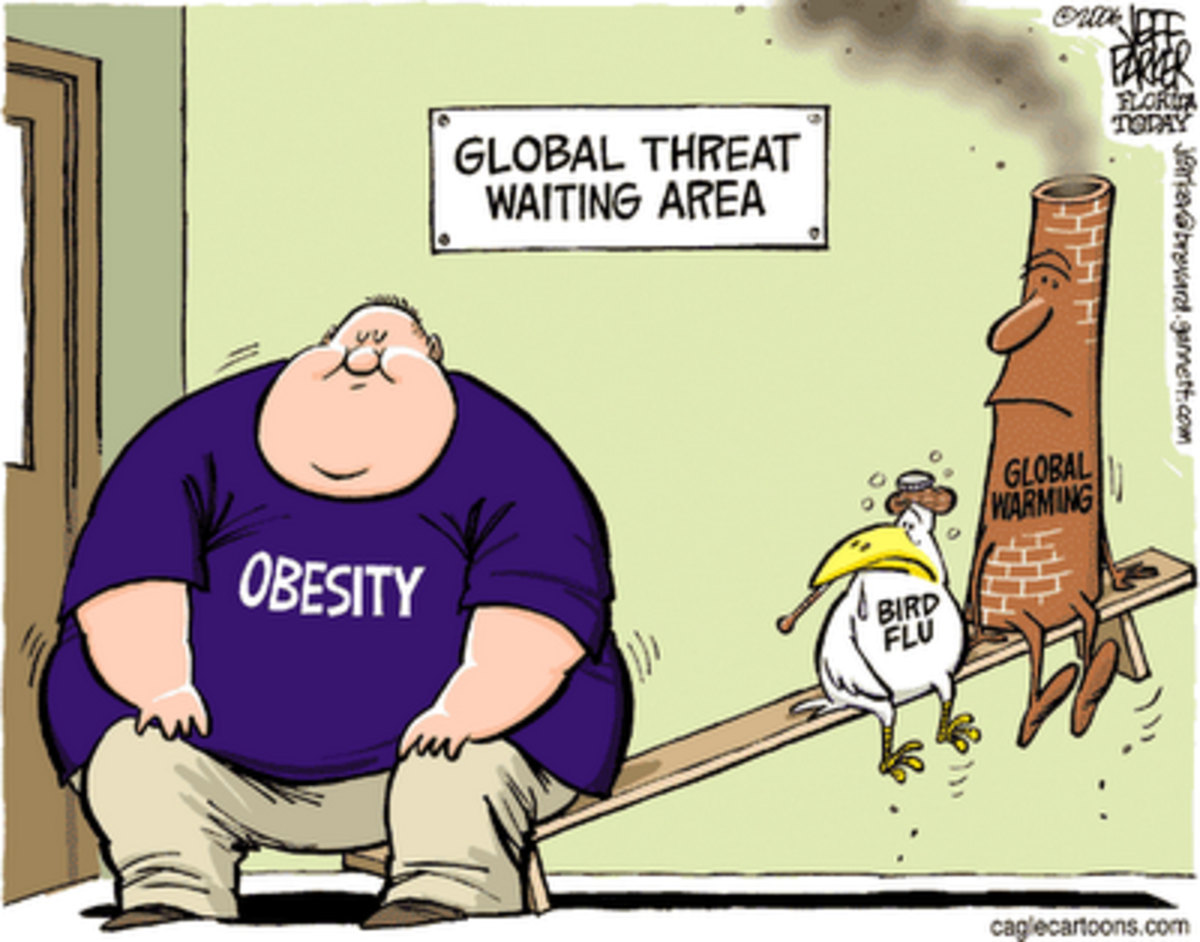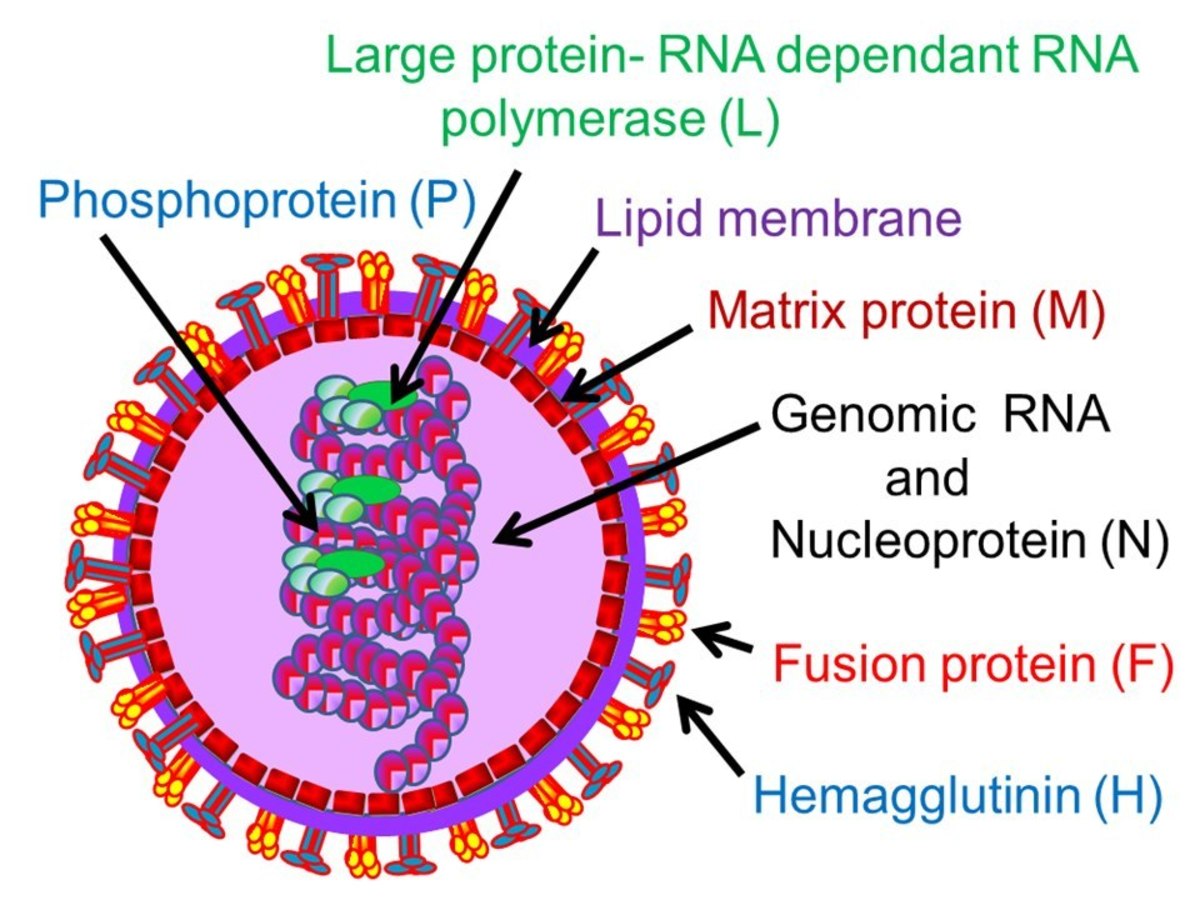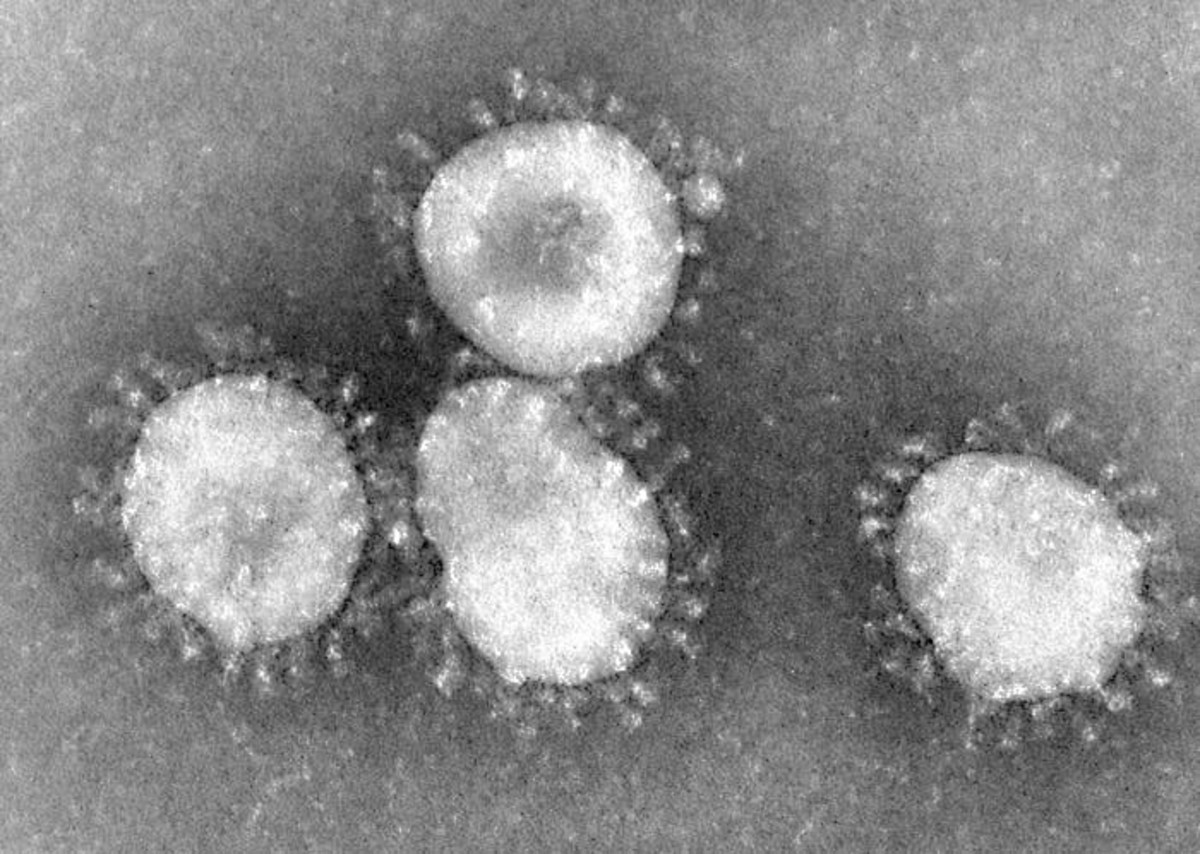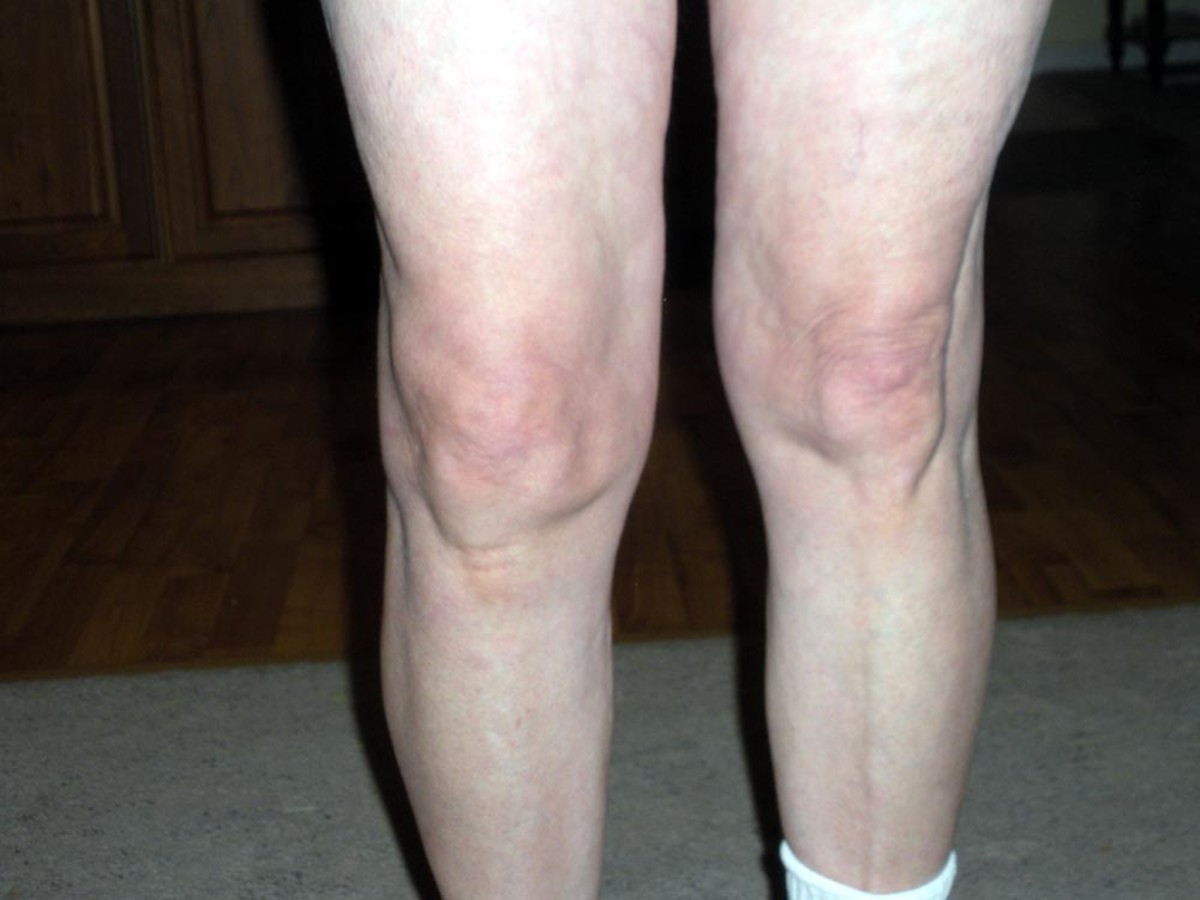Can a Virus Make You Fat? The Facts about Adeno-virus 36
Is obesity a disease? Can you catch it from somebody else? Is it infectious?
Up until recently, the idea would have been laughable. Obesity was considered to be caused by a combination of over-eating and not exercising enough. If the calories you took in as nutrients exceeded the calories you burned as exercise, then you would gain weight. It was as simple as that, and anybody who had ordinary arithmetic skills could keep track of their daily intake. Hence, if someone was morbidly obese, people believed that this person must be lazy and/or a glutton. How wrong that was!
Recently, evidence was uncovered showing that everybody in the United States is gaining weight on average, and by everybody, I don't mean just humans. Canaries are gaining weight. Dogs and cats are gaining weight. Marmosets and chimpanzees are gaining weight. What's more, there is now experimental evidence to show that a specific, identifiable virus which is readily found in many obese humans can cause obesity in otherwise normal animals once they are infected with it. The name of the culprit: adeno-virus 36.
A virus
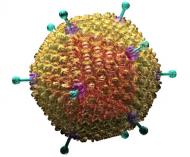
Obesity in Other Animals and in Humans
Dr. David Allison, who is an expert on obesity at the University of Alabama at Birmingham, came upon a record of marmosets in a Wisconsin research colony. Even though the diminutive primates had not been bred for size, and had been fed the same chow for over fifteen years, their weight had increased alarmingly. With this information in hand, Dr. Allison decided to investigate the weight histories of twenty-four other species kept in captivity or living near human population centers. He and his colleagues Yann C. Klimentidis, T. Mark Beasley, Hui-Yi Lin, Giulianna Murati, Gregory E. Glass, Marcus Guyton, Wendy Newton, Matthew Jorgensen, Steven B. Heymsfield, Joseph Kemnitz, and Lynn Fairbanks shared their research with the world in an article entitled Canaries in the coal mine: a cross-species analysis of the plurality of obesity epidemics, published in Proceedings of the Royal Society B: "Surprisingly, we find that over the past several decades, average mid-life body weights have risen among primates and rodents living in research colonies, as well as among feral rodents and domestic dogs and cats. The consistency of these findings among animals living in varying environments, suggests the intriguing possibility that the aetiology of increasing body weight may involve several as-of-yet unidentified and/or poorly understood factors (e.g. viral pathogens, epigenetic factors). This finding may eventually enhance the discovery and fuller elucidation of other factors that have contributed to the recent rise in obesity rates."
Dr Nikhil Dhurandhar has been carrying out animal and human studies on adeno-virus-36 for over ten years now. At the Pennington Biomedical Research Center in Louisiana he has now documented more than 1,000 patients whose obesity appears to be linked to infection with the virus. In an article by Diane Roberts for BBC Mobile (linked below), Dr Dhurandhar is quoted saying: "When this virus goes to the fat tissue it replicates making more copies of itself and in the process increases the number of fat cells, which may explain why people get fat when infected with this virus."
So far, in humans, there is only evidence of correlation between the adeno- virus 36 antibodies and the documented obesity in patients with those anti-bodies, but no direct evidence of causation. However, experiments have been done in which healthy non-humans were infected with the virus and became obese. This lends credibility to the speculation that infection with the virus is a causative agent in the obesity epidemic.
Obesity in Children
What are the symptoms of an infection by an adenovirus? They range from the common cold to pneumonia and croupe. Depending on the state of your immune system, it may be mild to severe.
A pediatrician at the University of California San Diego, Dr. Jeffrey Schwimmer, has discovered that of one hundred and twenty-four children aged eight to eighteen that he has studied, those with evidence of an antibody to a common cold virus were three times more likely to be obese than those without the antibody. Among overweight and obese children, those who have the antibody are on average 35 pounds heavier than those without the immune marker.
Does this mean that catching the common cold can make you fat? Well, it might mean that, if your cold was caused by the adeno-virus 36. Then, again, we don't know for sure. Not everyone who has the antibodies is affected the same way.
You can read more about it in the Time article by Alice Park that I have linked below.
Obesogenic Environments
Obesity in the Population at Large
There are many factors that play a part in the current Western obesity epidemic. Food is abundant. That means that access to food is not the deciding factor in regard to when people stop eating. Exercise is curtailed, and people are actually paid not to do physical labor. If they want to get physical, many contemporary workers have to go out of their way and even pay for the privilege with a gym membership. Throughout human history, the situation was reversed. To eat, you had to work at a job that expended massive amounts of energy. If you wanted not to burn calories, you were not paid for doing so.
Nevertheless, the calorie in, calorie out model does not explain why people who eat the same quantities and exercise to the same degree do not end up with the same weight gain or loss. Something in the metabolism of obese people makes them gain more weight under the same circumstances than their normal-weighted counterparts. The current research into adeno-virus 36 might help to explain the discrepancy. Maybe part of the answer has to do with catching a cold!
Conclusion
So what is the take-away lesson from all this information? Should we shun fat people for fear of succumbing to their fate? No, not at all! By the time someone starts to show some of the long term effects of adeno-virus 36, he is no longer infectious. People who have been obese all their lives due to the effects of the virus probably caught it in early childhood, in the form of a harmless- seeming cold. They were contagious for a week tops, but it left them with a lifetime of suffering and humiliation. So, on the contrary, if anything, this information should cause us to treat the obese with more understanding and respect. It should not add to the burden that they already have to carry.
Can the effects of the infection be reversed? We are a long, long way to finding an answer to that question. It is also possible that eventually a vaccine will be developed to keep anyone else from catching adeno-virus 36.
In the meanwhile, exercising good hygiene habits and avoiding viral infection is the best we can do to protect ourselves and our family.
(c) 2010 Aya Katz
Obese Animals
Progress in Obesity Research
Related Articles and Hubs
- Canaries in the coal mine: a cross-species analysis of the plurality of obesity epidemics Proceedin
- Zinc and the Common Cold
Saturday evening, I started to experience the familiar itchy feeling in my throat. I also felt a little woozy, and I thought I might have a fever. I started taking a zinc supplement. It was a Zicam Lozenge... - Obesogens
Are fat people always at fault for their condition? If you eat right, exercise daily, and lead a balanced lifestyle, will this always be enough to keep you fit and trim? Is the obesity epidemic in the United... - BBC NEWS | Health | Can a common virus make you fat?
A US doctor believes exposure to a virus may be the reason why some people become obese. - Can Catching a Cold Make You Fat? - TIME Healthland
Catching a cold is almost a rite of passage for the chilly winter months when people and viruses are often in close quarters. And thats especially true among children, who arent stingy about what they share among friends and loved ones when it come

